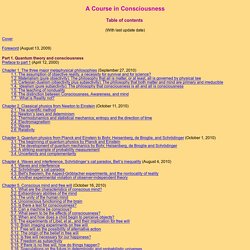

Dynamic Optical Illusions - GROW ILLUSION. Stare at the center of the below illusion for about a minute.

The longer the better. Then look away and watch you world melt! Press F11 to see the illusion full screen for a stronger effect! (press F11 again to return to normal browser view afterwards) Try all 8 above for different effects. This optical illusion (now at version 3) has been featured on the new page along with 6 other brand new illusions exclusive to Skytopia. Psychology studies relevant to everyday life from PsyBlog.
Logical Paradoxes. Why you should learn to lucid dream. If you’ve never experienced it then you may find it hard to understand what lucid dreaming is all about.

In fact you may be thoroughly sceptical and dismiss the whole thing as silly nonsense. But I can tell you from personal experience that lucid dreams are very real and something that many millions of people regularly enjoy. Note: Due to the huge amount of interest that this post has generated I am now seriously considering writing a book on the subject, and I would welcome input from anyone with an interest. If you have any anecdotes, suggestions, dreams or anything else you’d like to share with me for possible inclusion in the book, please email me. Your contribution can be anonymous and you may change any and all names/characters as you wish. Lucid dreaming is when you experience full consciousness while dreaming. You may also have another question on your mind, along the lines of “What’s the big deal with being conscious while dreaming, anyway?” Experiencing a lucid dream. Most of our troubles are due to our passionate desire for and attachment to things that we misapprehend as enduring entities.
18 Rules of Living by the Dalai Lama. You Become What You Pretend To Be. Lucid Dreaming/Using. Dream stabilization[edit] Once you are able to dream lucidly, you may find that it is difficult to stay in the dream; for example, you may wake instantly or the dream may start “fading” which is characterized by loss or degradation of any of the senses, especially vision.

Alternatively, a new lucid dreamer could easily forget that they are in a dream, as a result of the shock of the sensation. Don't worry if you wake immediately after becoming lucid. As you gain more experience of becoming lucid, it will come as less of a shock and you’ll be less likely to wake up. Make sure you do a reality check to be sure you’re not still dreaming. You can avoid more gradual fadings by stimulating your senses.
Ideally you should be able to use the techniques below to stabilize your dream before it starts to fade (or “black out”). Hand Touching[edit] Rub your hands together and concentrate on the rubbing. Spinning[edit] Slowing it down[edit] Touching your dream[edit] Regaining waking memory or skills[edit] How to Read Body Language to Reveal the Underlying Truth in Almost Any Situation. Table of contents. (With last update date) Cover Foreword (August 13, 2009) Part 1.

Quantum theory and consciousness Preface to part 1 (April 12, 2000) Chapter 1. 10 Psychological Experiments That Went Horribly Wrong. Psychology as we know it is a relatively young science, but since its inception it has helped us to gain a greater understanding of ourselves and our interactions with the world.

Many psychological experiments have been valid and ethical, allowing researchers to make new treatments and therapies available, and giving other insights into our motivations and actions. Sadly, others have ended up backfiring horribly — ruining lives and shaming the profession. Here are ten psychological experiments that spiraled out of control. 10. Stanford Prison Experiment Prisoners and guards In 1971, social psychologist Philip Zimbardo set out to interrogate the ways in which people conform to social roles, using a group of male college students to take part in a two-week-long experiment in which they would live as prisoners and guards in a mock prison. 9. Wendell Johnson, of the University of Iowa, who was behind the study Theodore Kaczynski, the Unabomber, also seen top.
Psychological ("personality") Types. Psychological ("personality") Types According to Jung's theory of Psychological Types we are all different in fundamental ways.

One's ability to process different information is limited by their particular type. These types are sixteen. People can be either Extroverts or Introverts, depending on the direction of their activity ; Thinking, Feeling, Sensing, Intuitive, according to their own information pathways; Judging or Perceiving, depending on the method in which they process received information. Extroverts vs. Extroverts are directed towards the objective world whereas Introverts are directed towards the subjective world. Color Psychology.
By David Johnson Like death and taxes, there is no escaping color.

It is ubiquitous. Yet what does it all mean? Why are people more relaxed in green rooms? Why do weightlifters do their best in blue gyms? Colors often have different meanings in various cultures. Black Black is the color of authority and power. White Brides wear white to symbolize innocence and purity. Red The most emotionally intense color, red stimulates a faster heartbeat and breathing.
The most romantic color, pink, is more tranquilizing. Blue The color of the sky and the ocean, blue is one of the most popular colors. Green. The Seven Wonders of the World.